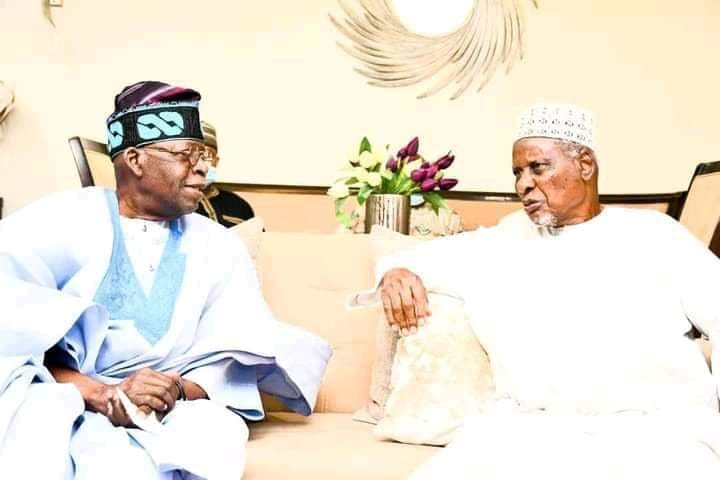Alhaji Tanko Yakasai, a respected elder statesman and seasoned political figure from northern Nigeria, has asserted that President Bola Tinubu currently holds the strongest position to secure victory in the 2027 presidential election. Yakasai bases this assessment on the robust political infrastructure Tinubu commands and his extensive network of support that spans across the nation. He emphasized Tinubu’s incumbency advantage, highlighting the support the president garners from ministers, governors, and other key players within the political landscape, positioning him as a formidable candidate.
Yakasai dismissed claims of any formal endorsements from northern political groups for alternative candidates, clarifying that such assertions represent individual viewpoints rather than the collective stance of organizations like the Arewa Consultative Forum or the Northern Elders Forum. He underlined that these groups have not officially taken a position on the 2027 presidential race. He further argued that Tinubu has not acted against the interests of the North, and that the North alone cannot determine the presidency, emphasizing the need for a national consensus.
Yakasai pointed to several factors bolstering Tinubu’s prospects. The All Progressives Congress (APC), the ruling party, still holds a majority in the states and enjoys support from some governors belonging to opposition parties. Furthermore, internal strife within major opposition parties weakens their ability to mount a serious challenge against the APC and Tinubu. This internal disarray, he believes, creates a more favorable environment for Tinubu’s re-election bid.
While declining to offer a direct assessment of the current administration’s performance, Yakasai urged politicians to approach politics with a focus on ideology and impactful programs, prioritizing the nation’s interests over personal ambitions. He cautioned against the divisive politics of ethnicity and religion, advocating for a shift towards a more unified and development-oriented political landscape.
Addressing the discussion surrounding a potential return to a regional system of government, Yakasai rejected the idea as impractical and outmoded for contemporary Nigeria. As someone nearing a century in age, he argued against the feasibility of reverting to the regionalism prevalent during the First Republic, pointing out the lack of widespread support for such a move. He underscored that democratic principles demand respect for majority consensus, emphasizing the importance of considering the will of the broader population before making such significant structural changes.
Yakasai further delved into the nature of Nigerian political parties, expressing concern over the lack of clear ideological foundations and the prevalent practice of political defection. He attributed the frequent party-switching to the absence of strong ideological convictions and the prevalence of self-serving political calculations. While acknowledging these fluidity, Yakasai refuted the possibility of Nigeria becoming a one-party state, citing the country’s size and existing multi-party system as safeguards. He also discussed the role of regional sociopolitical groups, arguing that bodies like Arewa Consultative Forum, Ohanaeze Ndigbo, and Afenifere have not significantly contributed to national unity. He reaffirmed his support for rotational presidency, a concept originating from the now-defunct National Party of Nigeria, as a mechanism for promoting national cohesion. He believes that rotating key political offices, especially the presidency, among the different regions of the country is crucial for long-term unity and stability.


